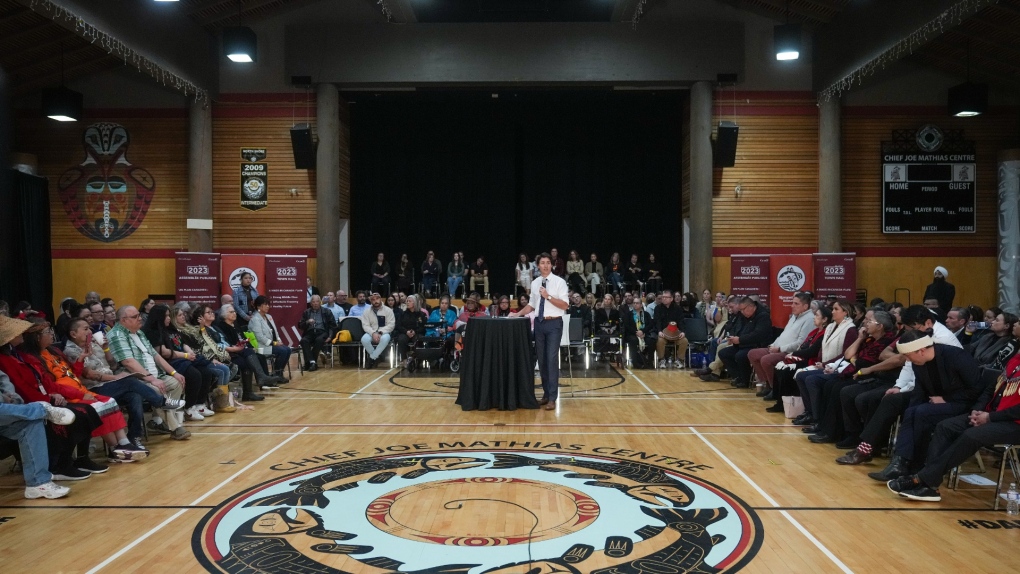
Indigenous people in British Columbia have lower life expectancy than the general population and also experience higher rates of illness, including mental health issues and substance use disorders.
The First Nations Health Authority hopes to change that by taking on more responsibility for delivering health services for Indigenous communities.
Since 2013, the federal government and FNHA have had an agreement granting the health authority control planning, management and delivery of health programs in 200 B.C. communities.
On Friday, the two parties announced they have renewed their agreement for another 10 years.
“It’s about ensuring that decisions that impact the health of First Nations will be made by First Nations,” Prime Minister Justin Trudeau told a crowd at the Joe Mathias Centre on the Squamish Nation’s Capilano Reserve.
According to the Canadian Medical Association, in addition to higher rates of chronic illness and mortality, Indigenous people also often face racism in the medical system.
And on Vancouver’s Downtown Eastside, Indigenous people make up a disproportionate percentage of those living with mental illness and substance use disorders.
«Having a trauma-based approach to this with a healing model is, I would say, what would be different. Significantly different,” said FNHA CEO Richard Jock when asked how his organization’s approach differs from other health authorities.
He said FNHA has opened six treatment centres and is building two more – counting on a culturally-sensitive holistic approach to be more effective in helping Indigenous people overcome addiction.
During a town hall after the announcement, Margaret Pfoh, CEO of the Aboriginal Housing Management Association, urged the prime minister to quickly build more First Nations housing because a safe place to live is critical for those trying to break the cycle of trauma.
“Our people are dying on our streets right now without that investment,” she told Trudeau.
FNHA says housing for those leaving treatment is an important part of the recovery process.
«Having access to housing is a key part of it and that will be a key part of our strategy going forward,” Jock said. “I would say that’s part of the solution and where we look to go in the future.»
SOURCE: CVNEWS